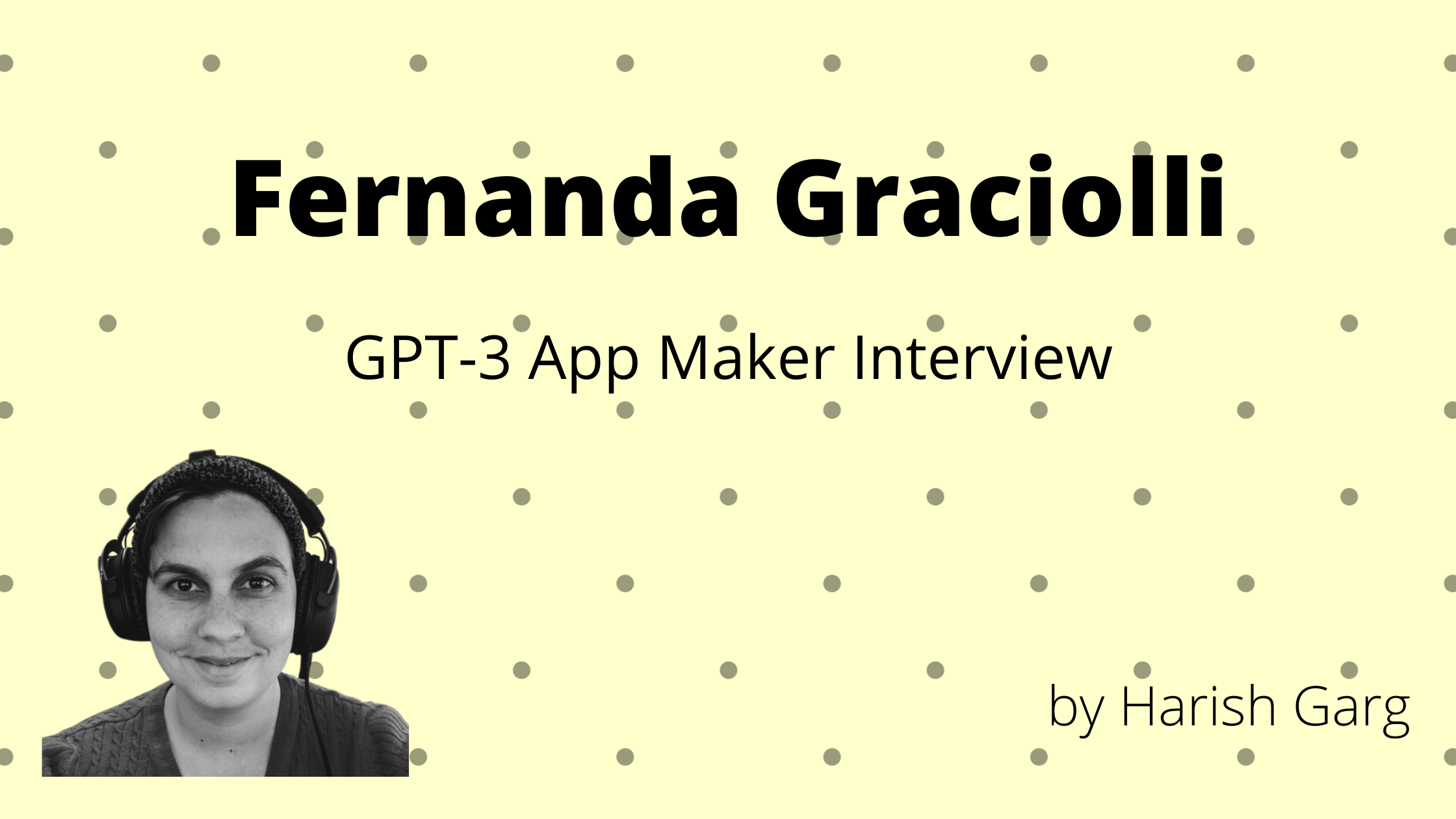GPT3 App Maker Interview with Fernanda Graciolli

Introduction
As part of the GPT-3 App Maker Series for my GPT-3 Guide, I interviewed Fernanda Graciolli, a prolific Maker. Her recent creation is inspired.so, a GPT-3 Powered App that helps you come up with blog topics.
How did you come up with the idea for Inspired?
The idea for Inspired wasn’t terribly original. A few other tools like Copy.ai and Snazzy already had a blog topic feature like Inspired’s. While it wasn’t a ground-breaking idea, I’d say my execution of it was pretty good compared to other tools. I put a lot of effort into making sure that that specific feature worked really really well.
Why did you decide to build with OpenAI GPT-3 API? Have you had other exposure to AI tech in the past?
I have had minimal exposure to AI in the past while building my last startup (which failed). I decided to build with GPT3 for a couple reasons. First, it actually allowed me to build something truly useful, rather than just a for-fun kind of tool, because its capability is unrivalled. Second, the ease of implementation made it so that any technical hurdles were very easy to overcome. These two things combined make for a technology that is unstoppable.
How is your product doing today? Also, What are your long-term plans for the product?
The product has garnered quite a bit of interest, although, no paying customers yet. However, I have not marketed it heavily at all. I’ve mentioned it a few times on Twitter and from that have gained some users. Long-term, I plan to sell Inspired to someone who can take it much further than I’ll ever be able to with proper marketing and sales.
What are the risks of building with a closed Platform like OpenAI? What are you doing to mitigate those in your product?
There are some major risks associated with building upon a closed platform like OpenAI. One risk is that they take away your access for some reason - they can do that at a moment’s notice. No access, no product. To mitigate this risk, I try my best to do everything by the book and stay on their good side. For example, I made sure to submit the app for approval before launching, and if I were to launch any other features, I would submit those for approval as well, one by one. Another way to stay on their good side is to implement the filter functionality properly so that my end users can’t misuse the AI.
They could also raise their prices and render the service untenable for smaller apps like Inspired. In this case, it would be hard to recover given that their best engine, DaVinci, is pretty pricey already. The best way to mitigate this would be to charge enough upfront to keep some cash in the coffers in case prices do go up.
What is your advice for founders looking to build products with OpenAI API?
If possible, try to tune the algorithm to work on the Curie engine (or below if your tasks are straightforward). You will save a ton of money this way. I would say, spend a good amount of time tuning the algorithm to give you really good results before you launch. This way, you’ll feel confident in your tool and won’t be easily swayed to make a million modifications based on user feedback. User feedback can be very scattered and not always the best indicator of whether or not your prompts are good.
What learning resources would you recommend to the founders looking to build AI-enabled products?
The best resource I’ve found for GPT-3 specifically is OpenAI’s documentation and Examples. I learned a lot by digging into the docs and just playing around with their example prompts.
What is your take on the current AI capabilities and also where are we headed in the next few years?
GPT-3 hit me by surprise when it came out; I didn’t know that we already had this level of capability. This makes me imagine that in the next few years, like within 5 years, we’ll have the ability to do some very powerful stuff with AI. I think we’ll be able to build and publish entire websites by simply writing prompts. I also believe we’ll be able to create videos the same way. I believe that the first AI-generated book will be written within 5 years.
Where can we go online to learn more about you or your product?
You can find me on Twitter at @heyyfernanda (my DMs are open and I’m always happy to chat) and you can go to inspired.so to try out the product.